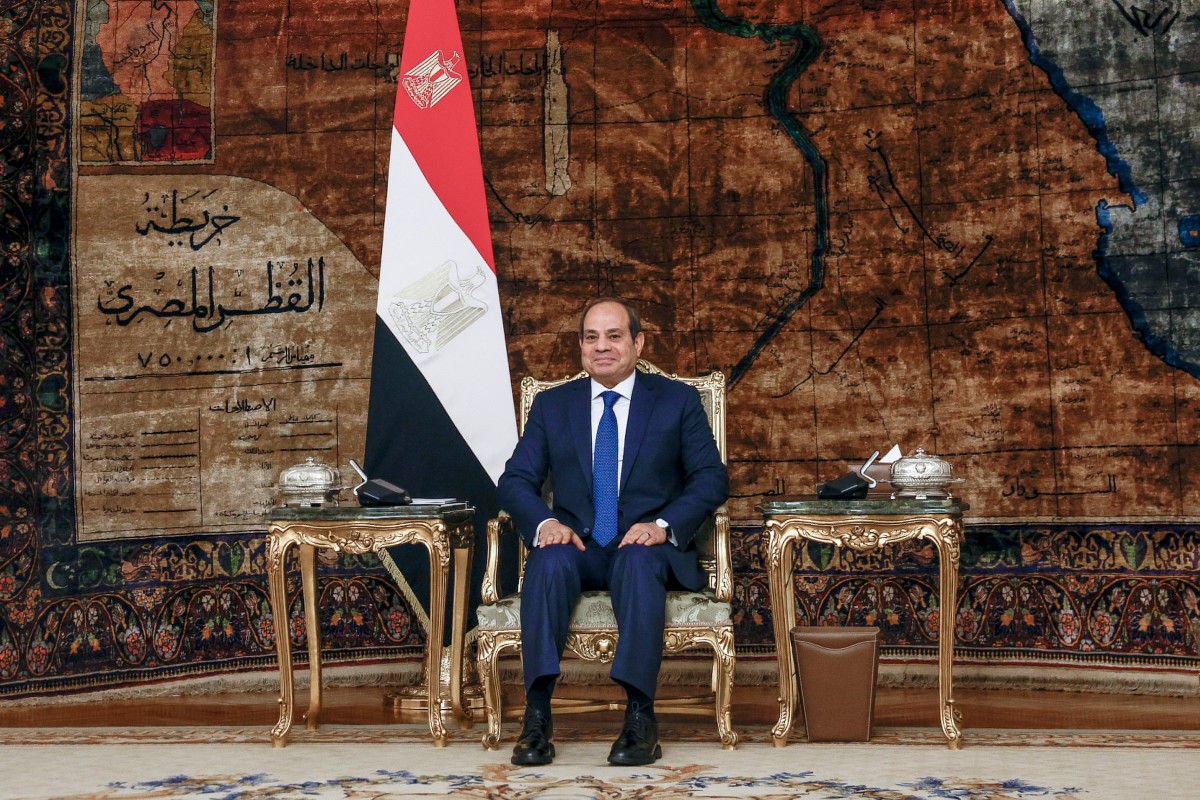Cairo, Egypt – Nestled in the heart of the historic capital here, a cultural center synonymous with the city’s art scene has been razed, the latest heritage site torn down for contentious development projects.
Authorities have been aggressively remaking parts of Cairo, a longtime cultural beacon of the Arab world, to expand the capital which is home to more than 20 million residents.
The government has built roads and bridges to connect new districts and business hubs, a glitzy makeover as Egypt faces a dire economic crisis.
The Darb 1718 center was demolished “without any prior notice”, its management said on social media on January 6, to make room for a highway expansion.
For 15 years, the center — named for bread riots on January 17-18, 1977 — had drawn artists and art lovers.
“We are deeply saddened and outraged to announce the demolition of the main building of Darb 1718,” the management said on Facebook, sharing images of a bulldozer tearing down the walls.
The post described the demolition as “a stark reminder of the ongoing threats to Cairo’s heritage and historic fabric, and the displacement of its communities without regard”.
The development flurry has been a pillar of President Abdel Fattah al-Sisi’s policies since he took power in 2013 after deposing Mohamed Morsi, promising Egypt’s 106 million people “modernity” and a “better future”.
In Cairo, residents, experts and campaigners have decried Sisi’s “bulldozer” policy that has already claimed numerous historic gems.
Since 2020, thousands of graves have been demolished in the sprawling cemetery in the middle of Cairo known as the City of the Dead — part of a UNESCO-listed World Heritage site.
Artist Moataz Naserddine, the founder of Darb 1718, said the demolition “just after the New Year break” took him by surprise.
Nothing but asphalt
Speaking on one of Egypt’s most popular talk shows, Naserddine recounted how he saw heavy machinery tear down the exhibition hall and two workshops.
“Everything inside was destroyed” including “the works of 150 foreign artists that are worth millions. I don’t know what to tell them now”, he said.
The TV host Lamiss Hadidi — who like most mainstream media figures in Egypt usually defends the authorities — appeared exasperated.
“How can we present a candidate for UNESCO (chief) and at the same time hate our own heritage?” she charged, referring to former antiquities minister Khaled el-Enany’s bid to become the director of the United Nations cultural agency.
“We hate our history and our old Cairo,” Hadidi said. “We want a city that will be nothing but roads, asphalt, bridges.”
Ayman Badr, an architect, said he felt “a mix of frustration, anger and deep sadness” at the demolition of Darb 1718.
He told AFP that over the years at the arts center, he had “met many artists and attended workshops and shows”.
“Darb affected not only myself, but also the residents of the neighborhood and particularly the children,” he said.
To see the establishment destroyed was “a massive shock”, Badr added.
Sensing a potential threat to his beloved institution, Nasreddine in July launched a petition to save Darb 1718, and more than 16,000 supporters had signed it.
He said he had also been promised by the district mayor to enter “negotiations after the presidential elections” to decide the center’s fate.
The vote took place in December and, as widely expected, assured Sisi the presidency until 2030.








